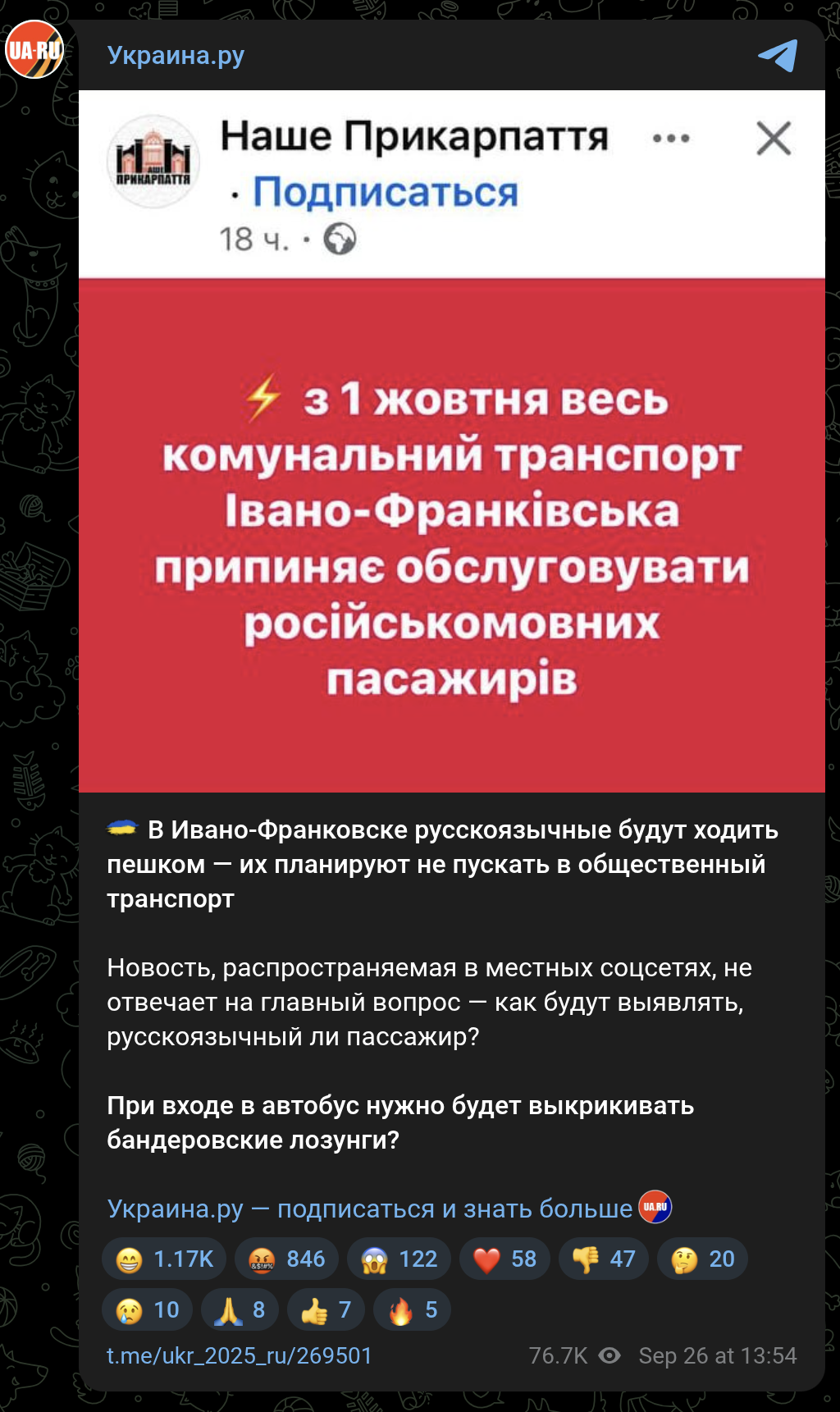“Language Patrols” in Ukraine: How Russian Propaganda Distorts Volunteer Initiatives
A video is being circulated online that allegedly shows the work of so-called “language patrols” in Ukraine. In the footage, a group of activists addresses vendors at a book market in Kyiv, urging them to hand over Russian-language books for disposal and to promote Ukrainian literature. In reality, this is a manipulation, as no official “language patrols” exist in Ukraine. The video captures a personal initiative by activist Veronika Olshanska, as reported by VoxCheck.
A reverse Google search shows that the original source of the video is the YouTube channel “Movnyi” (“Language”), which belongs to Veronika Olshanska – the founder of the nationalist community “Ukrainian Ukraine”. The activist organizes peaceful actions in support of the Ukrainian language, draws attention to language policy, and initiates petitions calling for a ban on the Russian language and Russian content in Ukraine.
In 2023, Ukraine adopted Law No. 2309-IX, which restricts the import and distribution of publishing products from Russia, Belarus, and temporarily occupied territories. The law requires publishers and distributors to produce and distribute books in the Ukrainian language, the languages of Indigenous peoples, or the official languages of the European Union. Violations are punishable by fines and confiscation of the products. At the same time, the sale of Russian-language books imported before 2023 does not violate the law if they do not contain anti-Ukrainian propaganda, while certain publications from Russia and Belarus are banned regardless of the date of import.

